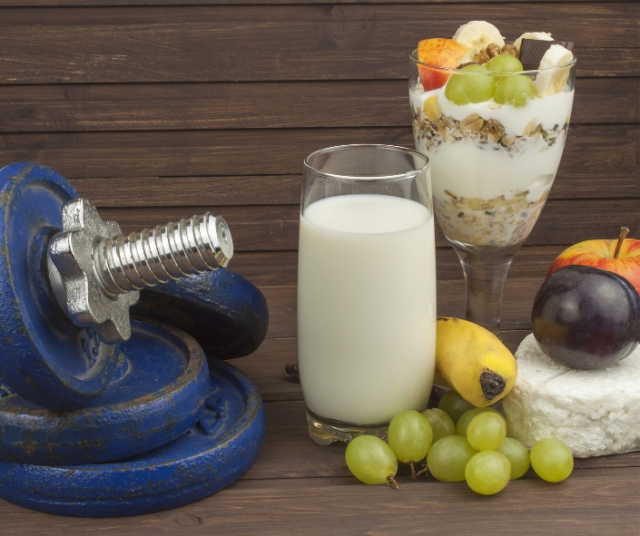Increasing muscle mass is a common goal for many people who engage in strength training and bodybuilding. However, achieving this goal isn't just about lifting weights; Nutrition plays a crucial role in the muscle development process. In this article, we will explore seven of the most effective diets to increase muscle mass in a healthy way. From traditional approaches to modern trends, each offers a unique nutritional plan and specific benefits to help you achieve your muscle-building goals and improve your overall health.
Diet rich in protein.
Diet rich in protein is essential for muscle development, since proteins are the building blocks of muscles. This dietary approach focuses on consuming an adequate amount of protein at each meal and snack to meet muscle growth and repair needs.
What does it entail?
- Intake of lean proteins, such as chicken, turkey, fish, lean meat, eggs, low-fat dairy, and tofu.
- Consumption of whey or casein proteins as supplements to help meet daily requirements.
- Equal distribution of protein throughout the day to maximize muscle protein synthesis.
- Adequate carbohydrate and fat intake to provide energy and additional nutrients for muscle growth.
Modified ketogenic diet.
The modified ketogenic diet is a variation of the standard ketogenic diet that is specifically tailored to the needs of bodybuilders and athletes who want to increase muscle mass. Unlike the traditional version, this diet allows for moderate carbohydrate intake to support intense workouts and muscle recovery.
What does it entail?
- Consumption of a limited amount of carbohydrates, usually around 10-15% of total calories.
- High protein intake to support muscle growth and repair.
- Consumption of healthy fats, such as avocados, nuts, seeds and olive oil, as the main source of energy.
- Constant monitoring of nutrient intake and adaptation according to individual needs and training goals.
Paleo diet.
The paleo diet, inspired by the diet of our Paleolithic ancestors, focuses on unprocessed foods and is based on the premise that humans are genetically adapted to consume the foods available during that era. This nutritional approach provides a variety of nutrients essential for muscle growth and overall health.
What does it entail?
- Consumption of high-quality proteins, such as lean meat, fish, shellfish, and eggs.
- Intake of healthy fats, such as coconut oil, avocados, nuts and seeds.
- Limiting refined carbohydrates and processed foods.
- Emphasis on fruits, vegetables, nuts and seeds as sources of carbohydrates and fiber.
- Inclusion of foods rich in antioxidants and anti-inflammatory nutrients to support muscle recovery and overall health.
Flexible diet/IIFYM. (If it fits your macros)
Flexible dieting, also known as "If It Fits Your Macros," is a nutritional approach that focuses on eating foods that fit individual macronutrient (protein, carbohydrate, and fat) needs. ) to achieve body composition goals.
What does it entail?
- Calculation of individual macronutrient needs based on weight, body composition, activity level and training goals.
- Flexibility to include a variety of foods in the diet, as long as macronutrient goals are met.
- Emphasis on moderation and balance in food selection.
- Using food tracking apps and tools to monitor nutrient intake.
- Diet adaptation based on changes in training goals and body composition.
Cycled carbohydrate diet.
The carbohydrate cycling diet is a nutritional approach that alternates between periods of high carbohydrate intake and periods of low carbohydrate intake to optimize athletic performance and muscle growth.
What does it entail?
- Consumption of a high amount of carbohydrates on intense training days to provide energy and support muscle recovery.
- Reduced carbohydrate intake on rest days or light training to promote fat burning and improve insulin sensitivity.
- Emphasis on nutritious, complex carbohydrate sources, such as brown rice, sweet potatoes, and oats.
- Inclusion of lean protein and healthy fats in every meal to maintain satiety and support muscle growth.
- Diet adjustment based on individual needs and training goals.
Diet for weight gainers.
The weight gainer diet, also known as "dirty bulking," is an extreme nutritional approach that focuses on consuming an excessive amount of calories to gain muscle mass quickly. While it may be effective for some individuals, it can lead to excessive body fat gain and long-term health problems if not done properly.
What does it entail?
- Eating large amounts of high-calorie, nutrient-dense foods, such as fatty meats, full-fat dairy products, oils, nuts, and processed foods.
- High protein intake to support muscle growth.
- Emphasis on quantity over quality of food, which can lead to less healthy nutritional choices.
- Lack of attention to body composition and metabolic health in favor of weight gain at any cost.
- Careful monitoring and monitoring of food intake and body composition to avoid unwanted side effects.
Although all of these diets have the potential to promote muscle development when followed properly, it is important to remember that there is no single diet that is right for everyone. The best diet for you will depend on your individual needs, training goals, personal preferences and overall health. Before starting any new diet, it is advisable to consult with a health professional or nutritionist for personalized guidance and support. By combining proper nutrition with a well-designed training program and a healthy lifestyle, you will be on the right track to achieving your muscle development goals and reaching your maximum physical and athletic potential.






